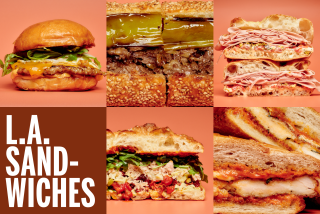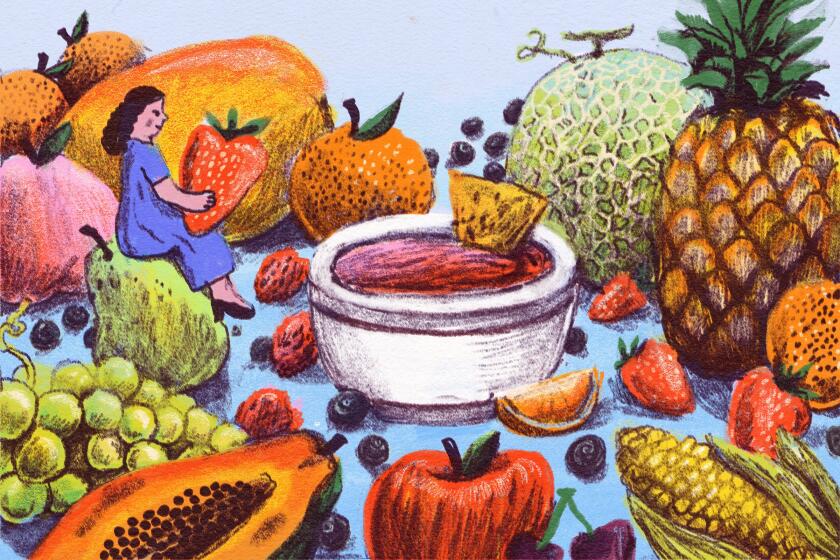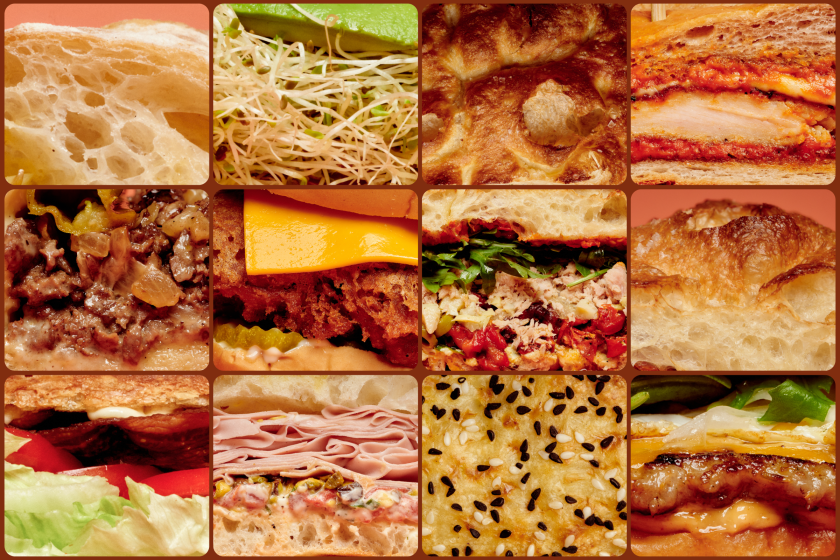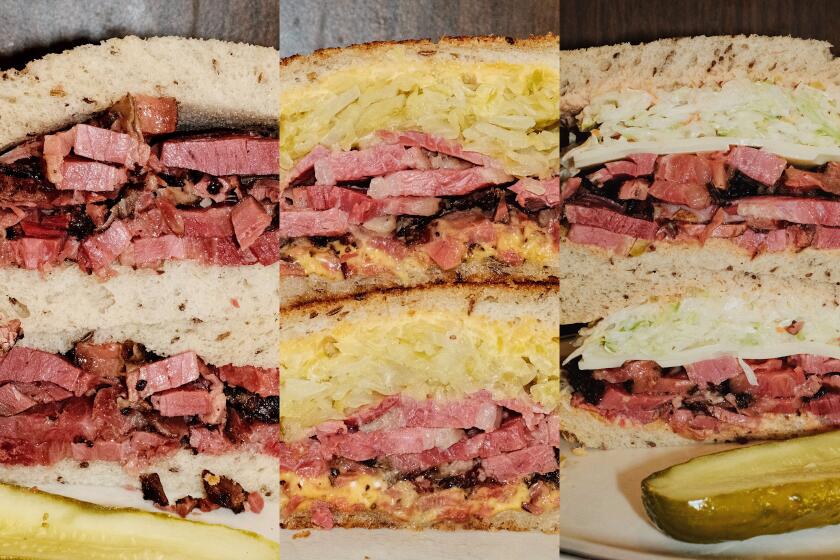A food fight
Re “Chew on this,” Opinion, Aug. 30
A news flash for Charlotte Allen: Concern for what’s in your shopping cart is called ethics, something about which conservatives usually seem (self-righteously) eager to lecture others.
If you don’t want to be admonished about the negative impacts of the production and consumption of your food and furniture, that’s your prerogative, but don’t castigate those who encourage responsible alternatives.
You shortsightedly reduce the issue to the impact on your pocketbook, while creating a false dichotomy that suggests one can only be “impoverished” or an ethical consumer. Your insincere concern for low-income consumers is a rehash of the canard that environmentalism and other progressive concerns are luxuries for the well-heeled.
Congratulations for being such a cheerleader for oceans full of plastic debris, the yawning trade deficit and the ever-increasing waistlines of Americans weaned on Frito-Lay products.
Joe Allegretti
Santa Barbara
--
Because I have heard a great deal about the many ways that our consumer culture is harmful, I read this article with interest.
Aside from the assertion that paying more for stuff will make us all poor, all I found was a peevish stream of invective about how bookish snobs want us all to live like monks.
The one salient point made here is the one of household economics. This is valid, but it’s only part of the story. If food and goods cost more at the register, there would be more money for producers to employ workers at reasonable rates.
The cheapness of goods and services is good for consumers, but the flip side is that low wages and high unemployment are bad for us.
I’m hardly a radical; I just think we can do better. If I must pay a bit more for superior products, then I’m all for it.
Cullen Davis
North Hollywood
--
After reading the article, I’ll say Allen is right in this: “We get what we pay for.”
If a family doesn’t have the money to buy organic foods, who am I to tell them to buy them anyway? It is a personal decision, but with the larger supermarket chains offering store-brand organic foods and drinks, I don’t spend a fortune either.
When I buy organic, I make the decision to support the farmer with my purchase. If enough people do this, I’m sure prices will go down.
Oh, and I guess I have to agree with Allen again: Haagen-Dazs might not be the best choice in food, but it’s certainly delicious.
Inge Moore
Long Beach
--
In her opinion article, Allen voices her disdain for a certain genre of social criticism that concerns itself with the actual cost, as opposed to the immediate monetary price, of the things we consume. However, while she clearly thinks these people are misguided, nowhere does she actually explain how or why.
The lowering cost and increasing abundance of food and other goods in the modern economy have no doubt been a boon to humanity -- at least to those living above the subsistence level.
However, there are substantial hidden costs. The decreasing prices of commodities are often the result of corporations paying as little as possible to the people who make and move the products they sell.
Things are also often apparently inexpensive because the true costs -- resource depletion, pollution of the air and water -- are often passed on to future generations.
Robert McKay
Studio City
--
Allen ridicules advocates of higher prices, but most of the goods that we ingest or use should indeed cost more. Not because of some elitist intellectual, social or green cause but for one very pragmatic economic reason: We are not paying the true cost of the things we buy.
If at the checkout stand we paid the true cost of products, we would derive many benefits, such as the creation of jobs in sophisticated new industries dedicated to the post-consumption processing of industrial products, and innovations in technology driven by the need to manufacture products that cost less to dispose of, recycle or reuse.
Ricardo Nicol
San Clemente
--
I disagree with Allen’s assertion that shopping at a farmers market is more expensive than the grocery store and therefore unrealistic for families struggling in today’s economy. Is a 50-cent cucumber expensive? How about a bag of four red peppers for $1? I bought those items last Sunday at my local farmers market.
You don’t have to buy organic peaches at the farmers market, just as you don’t have to buy them at the grocery store. There is plenty of non-organic, reasonably priced produce. And it’s also cheaper in that you’re not tempted by the processed food that Allen oddly defended (like Haagen-Dazs ice cream).
I wonder if Allen has ever shopped at a farmers market herself? She might not have been so quick to attack them as a favorite of only liberal lefties.
They’re a good option for cost- and health-conscious people too.
Amanda Riddle
Long Beach
--
The anti-slow-food-movement screed by Allen was disappointing, not so much for its underlying politics -- people are free to disagree -- but for its overarching (and proud) ignorance. Allen seemed intent in not learning about the movement she was taking to task.
Which makes for an easy, knee-jerk column, but does little to address the complex public health, environmental or economic issues involved in our food industry. Inviting someone from the other “side” of the debate (like Michael Pollan) to respond would go a long way toward actually educating people.
Evan Rose
Oakland
--
I am one of the “social critics” Allen writes of in her opinion article.
Highly processed food may be the cheapest choice at the checkout stand, but the hidden costs are incredibly high.
Consider the obesity epidemic in our nation, and the economic impact and human suffering caused by mostly preventable chronic diseases, such as diabetes. The space devoted to Allen’s article would have been much better used providing useful information about how to put in a home garden.
Rose Hayden-Smith
Ventura
The writer is a director of the UC Cooperative Extension.
More to Read
Eat your way across L.A.
Get our weekly Tasting Notes newsletter for reviews, news and more.
You may occasionally receive promotional content from the Los Angeles Times.









